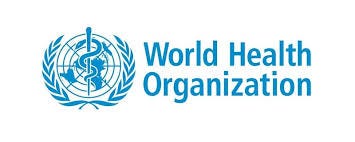The Financial Health of the World Health Organization

Earlier this week, the Weinberg College Center for International and Area Studies at Northwestern University hosted an event with Gian Luca Burci, the former general counsel of the World Health Organization (WHO). Burci has been out and about since the pandemic began, illuminating and offering important nuance regarding the work of an organization that has become so central during the pandemic.
In this session, moderated by Northwestern scholar Ian Hurd, Burci did not say all that much about the performance of the organization during the pandemic. He seemed to acknowledge the now widely accepted view that the WHO leadership made missteps early in the crisis, primarily by being too deferential to China’s leadership. But he also emphasized important work the organization has done since that point and insisted that the United States is quite isolated in its harsh interpretation of the WHO’s performance.
This extreme hostility from the U.S. is not widespread. There is actually a lot of support. There is criticism of mistakes that WHO made; certain positions that WHO shouldn’t have taken. There is some criticism about the director general but by and large covid doesn’t show the marginality of WHO, it shows how important it is.
Some of Burci’s most interesting comments centered on the financing of the organization. Echoing a perennial complaint by international organization officials, he lamented the tendency of WHO member states to impose significant demands on the organization without providing adequate or consistent resources—a practice he described as “the traditional hypocrisy of states.” One manifestation of this practice, in his view, is the WHO’s heavy reliance on voluntary as opposed to assessed contributions (about 80 percent of WHO funding is voluntary in nature). Because it is subject to diversion at any point, a voluntary funding stream tends to give donors added influence on how funds are spent. “The strings are attached by everybody—not just by China,” Burci said.
On that question of China’s financial weight in the organization, Burci downplayed the notion that Beijing has (or is likely to acquire in the near future) a decisive voice by dint of its financial firepower:
The financial contributions of China [to WHO] for the moment are very limited. Also China is still in this sort of developing country mode. It’s the second economy in the world, but until not too many years ago was a recipient of funding from the Global Fund on HIV/AIDs, Malaria and Tuberculosis, which was absolutely perverse.
He pointed out that the politics of influence at the WHO are far more complex than the recent focus on U.S.-China tension allows. Other countries, including Brazil, have played important roles in shaping the organization’s priorities.
The future U.S. relationship with the organization came up at several points, and Burci expressed hope that even a second Trump administration might not follow through on its planned withdrawal (a Biden administration, he predicted, would reverse the withdrawal decision in short order). But he seemed to downplay the notion that a consummated U.S. withdrawal would be financially devastating for the organization. He noted that other countries, including Germany, Saudi Arabia, and the United Kingdom, increased their contributions in the wake of the Trump administration’s decision. (Indeed, earlier this month the WHO announced a new contribution of $90 million from Saudi Arabia).
WHO financing is a more complex equation than just national contributions (whether voluntary or assessed). Private foundations, he pointed out, have become a vital part of the WHO’s funding model, with the Gates Foundation being the most important private player (I discussed this phenomenon briefly in an earlier post). Burci referenced the governance challenges created when a nongovernmental actor is a leading donor to an international organization:
The financial firepower of Gates is unprecedented. That obviously brings ambivalence because after all who is the Gates Foundation? It’s a largely unaccountable entity ultimately accountable to a married couple. So it goes against, if you want, accepted principles of good governance, accountability, and democracy at the international level. At the same time, it has become indispensable.
Burci noted that Gates funding and influence has kept alive some WHO programs (including polio eradication) that might otherwise have expired. But he also alluded to frictions within the organization about the “Gates model” of public health, which he described as research-focused, science-driven, and biomedical in orientation. This approach often runs up against preferences by others within the organization for more social-justice inflected tactics, including bottom-up social interventions, behavior modification, and education campaigns.
The whole session is worth a listen and can be found here.


